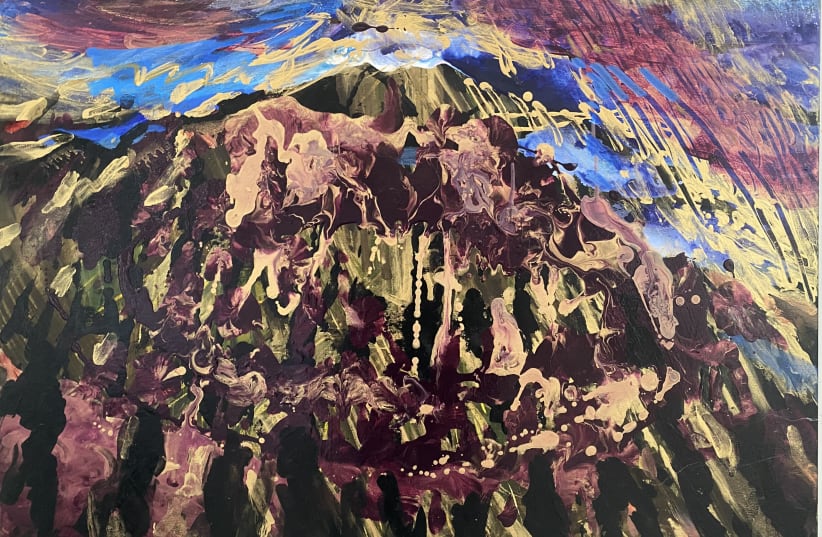“And all the people saw the voices and the torches, the sound of the shofar, and the smoking mountain, and the people saw and trembled” (Exodus 20:15).
In the daily “Six Remembrances,” we are told to be careful to never forget all the things our eyes saw and to pass on to our children the vision of how we saw the voice of God speaking from heaven and within the fire.
We can hardly imagine what we saw and heard at Mount Sinai – the thunder and lightning, God’s glory and His greatness, and His words that we heard from amid the fire. We saw how “the mountain burned with fire, to the heart of the heavens,” and we saw the voice of God speaking from heaven and from within the fire. Face to face, the Lord spoke with us at the mountain out of the midst of the fire.
What is the voice of God?
The midrash explains: “These words (the Ten Commandments) God spoke to your entire assembly at the mountain out of the midst of the fire, the cloud, and the opaque darkness, with a great voice which did not cease” (Deuteronomy 5:19).
The midrash then says that the Torah was given with one voice that was divided into seven voices. This was the voice of all subsequent prophecy. This voice had power, as it says: “The voice of the Lord is with power.”
The midrash further tells us that these voices “were accompanied by sparks of fire and flashes of lightning that were in the shape of the letters of the Ten Commandments. They saw the fiery words pouring out from the mouth of the Almighty and watched as they were inscribed on the stone tablets, as it says, ‘The voice of God inscribes flames of fire’” (Psalms 29:4).
“And when the people actually saw ‘The One Who Speaks the World into Being,’ they fainted away. Some say that their spirits left their bodies, while others say that they entered a prophetic trance. These visions brought them to trembling and shaking and a blackout of the senses” (Midrash Exodus Rabbah).
Yoram Raanan’s painting Shaken and Stirred (Har Sinai) resonates and vibrates with the intensity of the Sinai moment. The darkness is opaque, recalling the “thick darkness where God was” (Exodus 20:18), and yet the mountain is on fire, in tones of gold, blue, turquoise, and deep purple. We feel how everything is vibrating with frenetic energy, intense movement, and vague suggestions of figures. The shapes could be seen as flattened against the side of the black mountain, recalling the midrash that in the encounter at Sinai the people died and were brought back to life.
Our sages tell us that with every word of the Ten Commandments, our souls left their bodies and then were revived by the dew and life force of the Torah that we forever engrave in our souls. God spoke our souls into us. We could see this. And we trembled, and the mountain shook.
Our teachers stressed the importance of impressing this on children’s minds. The indelible impression made by this encounter keeps alive the knowledge of our uniqueness and closeness to God, and of the promise that will be kept. ■
Meira Raanan is the author of Art of Revelation: A Visual Encounter with the Jewish Bible, a commentary on the paintings by her husband, Yoram Raanan. She also teaches Jewish meditation. Esther Cameron is a poet, scholar, and essayist living in Jerusalem. She is editor-in-chief of The Deronda Review.

